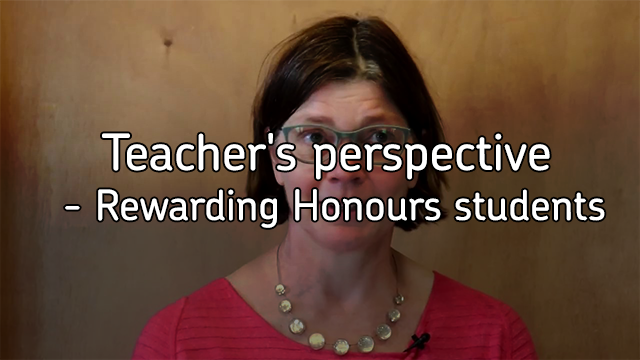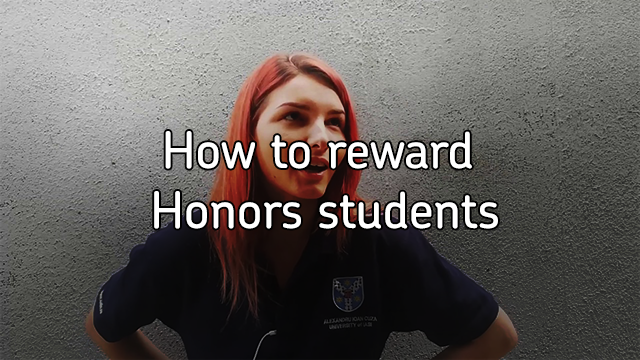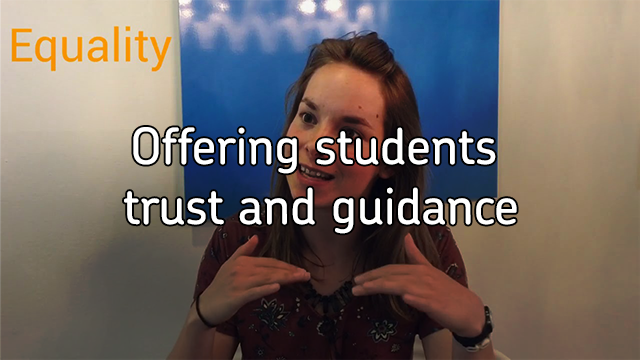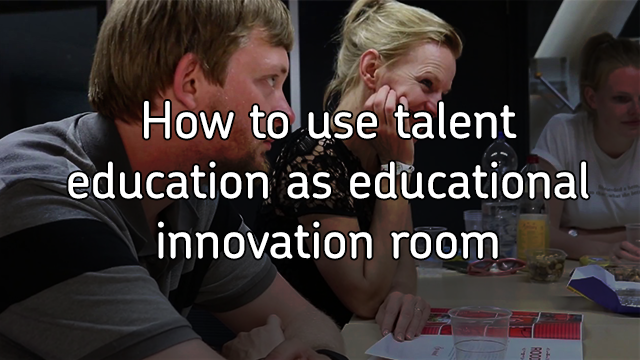Setting challenging tasks and assignments
A best practice example of how to set challenging tasks and assignments. Honors programs offer students ways to develop their academic competences.
You can enable subtitles by pressing the CC icon on the video
Talented students need to be challenged in order to develop further. Therefore, a teacher should give students something to think about. The challenging task given can include various social forms and disciplines.
If interdisciplinary techniques, field practice and theoretical knowledge are included when tasks are developed, students need to change perspectives, work together and approach possible solutions from different angles in order to solve the given problem. They will be challenged on a higher level. Students will learn that struggles and failures are part of the learning process, which leads them to a satisfying solution.
As a teacher you should guide the students’ learning process as much as it is required instead of offering ready-made solutions directly from the beginning.
Questions for reflection
1. Which ways of setting challenging tasks and assignments exist in your own faculty?
2. How do your students cope with challenging tasks and how do you as a teacher support them in solving those tasks?
3. How do you deal with your students’ emotions and struggles when solving the task is not possible or more difficult than expected?
4. Do you remember challenging tasks during your own study? How did you solve them and which experiences have you made?
Scager, K.; Akkerman, S. F.; Pilot, A. & Wubbels, T. (2014). Challenging high-ability students. Studies in Higher Education, 39 (4). 659-679. https://doi.org/10.1080/03075079.2012.743117
Tansley, C., Hafermalz, E. and Dery, K. (2016), “Talent development gamification in talent selection assessment centres”, European Journal of Training and Development, Vol. 40 No. 7, pp. 490-512. https://doi.org/10.1108/EJTD-03-2016-0017
Tweedale, C. & Kronborg, L. (2015). What contributes to gifted adolescent females’ talent development at a high-achieving, secondary girls’ school? Gifted and talented International, 30 (1-2), 6-18.
Ujir, H.; Salleh, S. F.; Marzuki, A. S W.; Hashim, H. F.; Alias, A. A. (2020). Teaching workload in 21st century higher education learning setting. International Journal of Evaluation and Research in Education, 9(1), 221-227. https://files.eric.ed.gov/fulltext/EJ1246415.pdf
International Centre of the Study of Giftedness at the Westphalian Wilhelms-University of Münster
Vivian Marielle van Gerven – Teacher Educational Sciences
Judith Wenker – Student of Teacher Training (subjects History & English)
Carolin Böckers – Student of Teacher Training (subjects English & Mathematics)
Pictures: Eyline Bartl, Steffen Vollmar, Friederike Rogge, Oliver Eschhaus, Carolin Böckers, Judith Wenker, Vivian M. van Gerven




